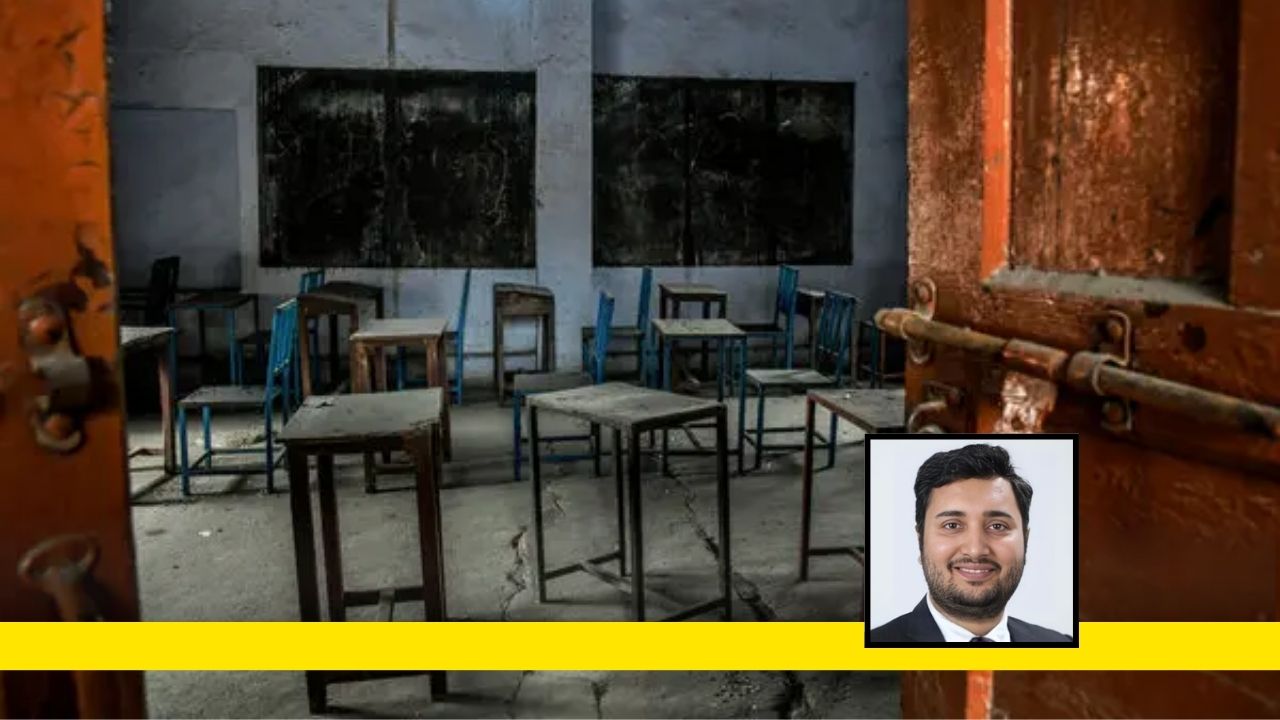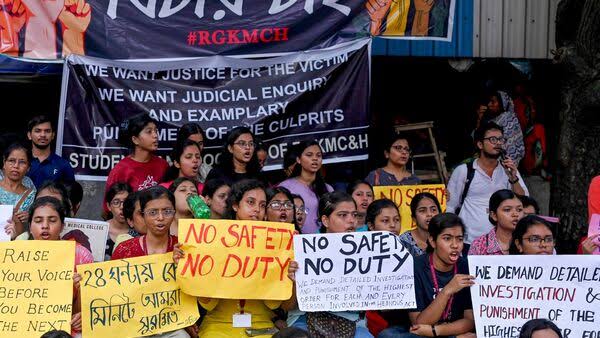
As the heinous rape and murder of a postgraduate medical student in the Kolkata RG Kar Medical College continues to cause outrage amid calls for justice from large sections of population, Dr. NM Mujeeb Rahman, himself an experienced doctor and the father of a postgraduate medical student, discusses the responsibilities that larger society has to take up in order to prevent repetition of such horrific crimes.
On the night of August 9, a final-year postgraduate student specializing in Chest Medicine at RG Kar Medical College, Kolkata was on night duty. Incidentally RGKMCH is Asia’s first government medical college and hospital, established in 1886. The scenes at the hospital were chaotic, a reflection of the typical overcrowding that plagues government hospitals in India. The wards were packed with patients, many of whom were suffering from breathlessness due to diseases like asthma and other major lung conditions. It was not until 2 AM that the doctor, along with her fellow junior doctors, managed to find a moment to eat. Exhausted, she retreated to the seminar hall for some rest—an improvised resting space for duty doctors in the absence of any proper facilities at the college.
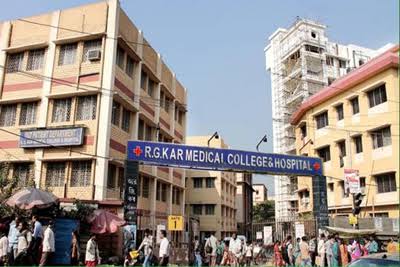
The next morning, a horrifying discovery was made. The young doctor’s lifeless body was found in that same seminar room, brutally raped and killed. Her naked corpse bore the marks of a crime so heinous that it shocked even those familiar with the violence women often endure. The gruesome nature of her death brought back chilling memories of the Nirbhaya case, a name that has become synonymous with the extreme gender-based violence that women in India face. But this time, the victim was a young doctor, a woman who had devoted her life to saving others, only to meet a tragic end in the very place where she sought to help.
As details of the incident emerged, the question that lingered in the minds of many was—how could this happen? The lack of basic security measures, such as CCTV cameras or even a secure room for doctors on night duty, highlighted the systemic failures that had contributed to this tragedy. In a country where violence against women is rampant, how can such negligence be tolerated, especially in a government institution meant to care for and protect lives?
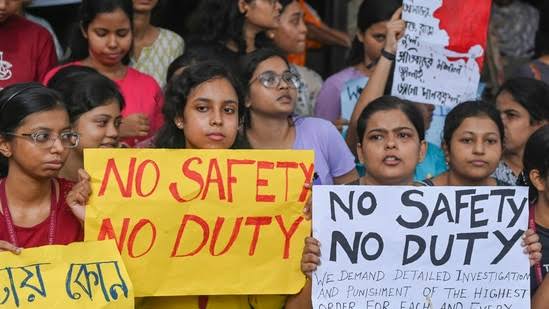
The victim’s story resonates deeply with countless others. As a father of a daughter around the same age as the victim, and as a teacher to many young female students, this tragedy strikes a particularly painful chord. My daughter is also a postgraduate medical student, and like her, there are thousands of young women across the country who work tirelessly in hospitals, often during the vulnerable hours of the night. These women—doctors, nurses, and other hospital staff—serve on the frontlines, yet they remain woefully unprotected.
This incident at RG Kar Medical College is not an isolated case. It is a stark reminder of the unsafe working conditions that persist in many of India’s government medical institutions. These institutions are often underfunded and overcrowded, with minimal infrastructure for the safety and well-being of their staff. For female doctors, nurses, and other healthcare workers, the lack of security and basic amenities like a secure resting area can lead to devastating consequences.
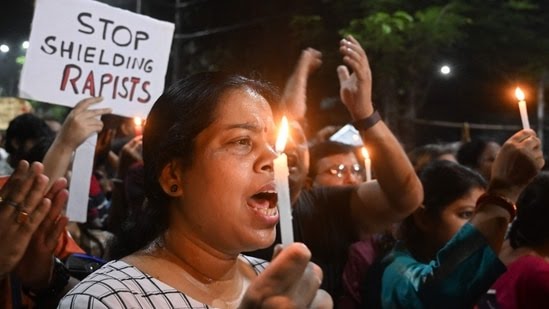
The systemic failures that allowed this tragedy to occur go beyond the individual who committed the crime. The lack of proper security measures, the absence of CCTV cameras, and the failure to provide a safe resting space for doctors on night duty all contribute to an environment where such crimes can happen. The real killers, in this case, are not just the perpetrators of the crime but also the system that failed to protect this young doctor.
The parallels to the Nirbhaya case are all too evident. Despite the national outcry that followed Nirbhaya’s death and the subsequent changes in laws and policies, incidents like this continue to occur with alarming frequency. The culture of impunity around violence against women in India has not been adequately addressed, and the failures of institutions to protect women are glaringly evident. For every high-profile case like Nirbhaya, there are countless others that go unnoticed, unreported, and unresolved.
The tragic death of this young doctor raises important questions that need to be addressed. Why are there no proper facilities for doctors to rest securely during night shifts in government medical colleges? Why are there no CCTV cameras in sensitive areas within these institutions? What measures are being taken to ensure the safety of healthcare workers, especially women, who work long hours under immense pressure?
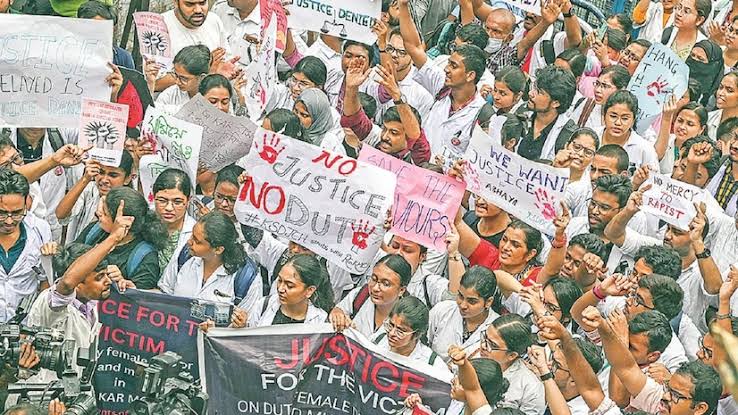
While the immediate focus should be on bringing the perpetrator to justice, it is equally important to address the broader systemic issues that allowed this crime to happen. There needs to be a thorough investigation into the security lapses at RG Kar Medical College, and the findings should be used to implement changes across all government medical institutions in the country. This is not just about seeking justice for one individual; it is about preventing future tragedies from occurring.
The safety and security of healthcare workers, particularly women, must be prioritised. This includes providing secure resting areas, ensuring proper security measures such as CCTV cameras, and addressing the broader cultural and institutional factors that contribute to violence against women. The healthcare system in India is already under immense strain, and the loss of dedicated professionals due to such preventable tragedies is unacceptable.
As a society, we must demand more and better. The lives of our daughters, sisters, colleagues, and students depend on it. The real killers in this case are not just those who committed the crime, but also the system that allowed it to happen. Until we address these systemic issues, the cycle of violence against women will continue unabated.
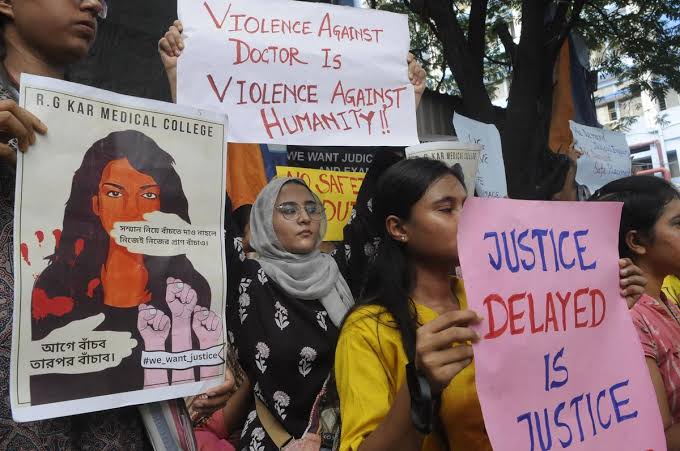
The tragedy at RG Kar Medical College serves as a painful reminder that Nirbhaya’s story is far from over. It is a story that continues to be written every day, in every corner of the country, as long as women remain unsafe in their homes, workplaces, and public spaces. The question is, how many more lives will be lost before we take meaningful action to end this violence? How many more young women will have to suffer before we say, “Enough is enough”?




